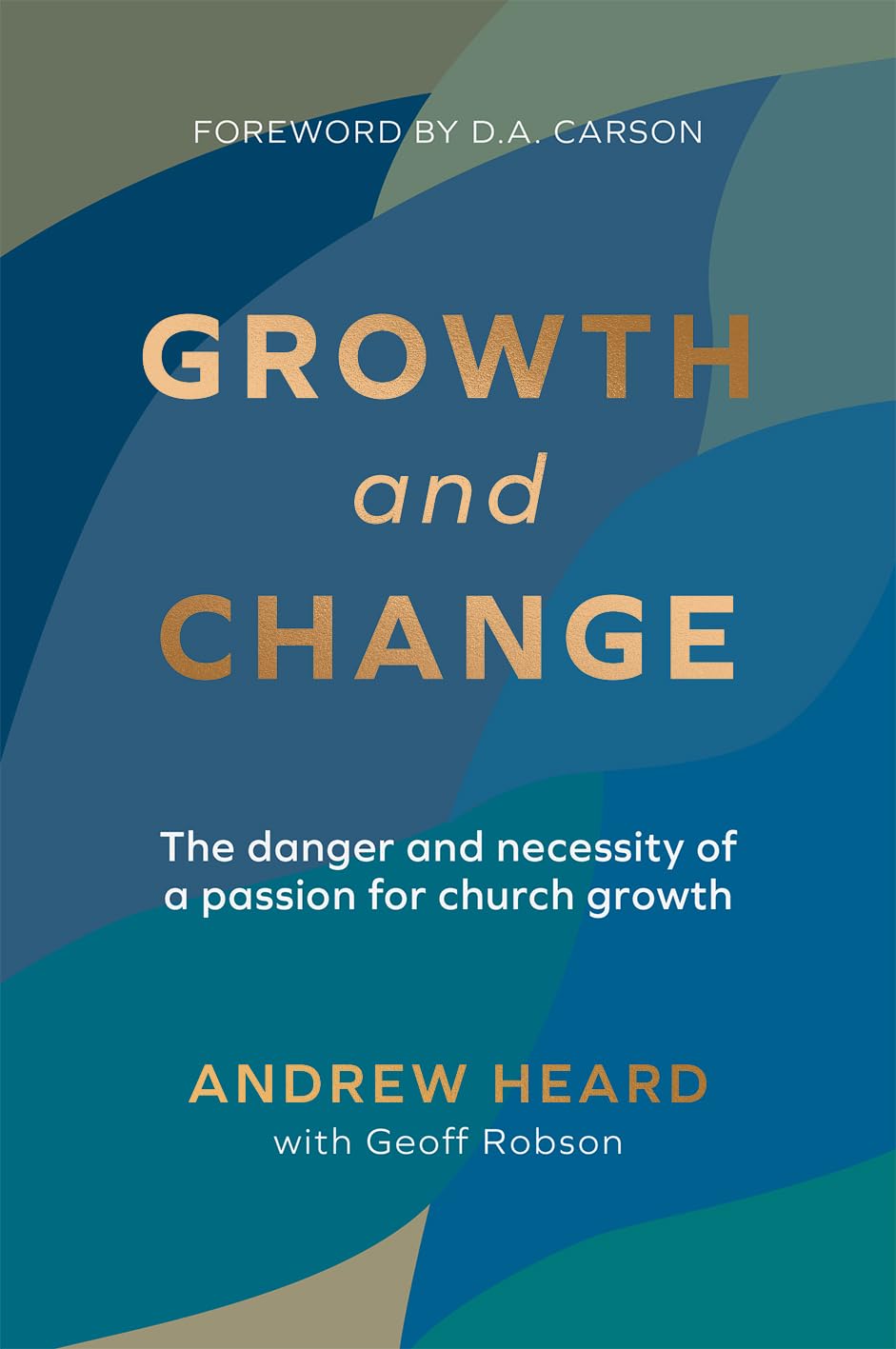Imposter syndrome is real. Many highly qualified people in fields like medicine, sports, and teaching experience a sense of anxiety that despite their degrees and experience, they simply aren’t competent to do the job. Pastors can feel the same way, even those who have finished seminary and have been leading a church for years. Emerging ministry challenges, shifting cultural trends, and demanding personalities can make even seasoned pastors wonder whether they belong in ministry.
One way to minimize the chance of a crisis of confidence is to continually study the craft. Professional athletes are coached by experts who help them perfect their swing, enhance their ability to anticipate a play, or improve their physical condition. They’re constantly getting feedback from experts. Pastors often get a lot of feedback, but it’s not always from those with deep familiarity with the pastoral vocation. For many pastors, the best way to get expert help is to turn to books.
I’m an elder, and these seven recent books have enriched my spiritual life and helped me grow in my understanding of how to care for the souls of my congregation well.

Growth and Change: The Danger and Necessity of a Passion for Church Growth
Andrew Heard
Growth and Change: The Danger and Necessity of a Passion for Church Growth
Andrew Heard
For many years, evangelical church leaders have been told that the key to seeing gospel growth is to “just be faithful.” In Growth and Change, Andrew Heard challenges this misconception head-on with wisdom from decades of ministry experience and deep theological reflection. Richly biblical and heartfelt, this ground-breaking book confronts sacred cows, rejects easy answers, and addresses the tensions felt by every leader who wants to proactively work for change while remaining absolutely committed to the word of God. This is a must-read for every church leader committed to seeing the gospel of Jesus grow and bear fruit.
1. Growth and Change: The Danger and Necessity of a Passion for Church Growth by Andrew Heard (Matthias Media)
When Don Carson is excited about a book, you know it’s good. In his glowing foreword, he notes, “The range of [this book’s] coverage is remarkable.” And it is. Andrew Heard, an Australian pastor and leader in several evangelical networks, looks at the tension between worldly and biblical ideas of growth and change.
For many pastors, the best way to get expert help is to turn to books.
Heard navigates the narrow channel between stodgy traditionalism and modern liquidity as he points readers to the theological principles that should guide our ministry methodology. He recognizes the dangers of focusing on numerical growth but also highlights that if we’re being faithful evangelists, we should expect some numerical growth, even in a hostile culture. The book is both challenging and encouraging no matter where you are in your pastoral career.
2. The Elder-Led Church: How an Eldership Team Shepherds a Healthy Flock by Murray Capill (P&R)
After years of studying the issue and rewriting our constitution, my local church recently moved from a sole-pastor model to a plurality of elders with staff and volunteers sharing the load. As one of those new elders, I’ve been part of working out how exactly we’re going to function as we lead the congregation.
Capill’s book begins with a clear theological focus on the biblical role of elders before moving to more practical leadership techniques. Leading as a team can be hard, but The Elder-Led Church provides clarity for existing elder teams or those considering moving toward a plurality of elders. It was the top book in the ministry category of the 2024 TGC Book Awards for good reason.
3. How to Be a Pastor: Wisdom from the Past for Pastors in the Present by Theodore L. Cuyler (Wipf & Stock)
Two Baptist editors, Ray Van Neste and Justin Wainscott, have done the evangelical world a service by bringing this pastoral manual by a Presbyterian back into print. Cuyler was the longtime pastor of Lafayette Avenue Presbyterian Church in New York City. At one point in the late 19th century, it was the largest Presbyterian church in the United States.
In this book, Cuyler provides clear practical advice on the pastoral role. He offers guidelines for in-home visitation, instructions for leading a prayer meeting, and ideas for discipling new believers. Some methods are dated and will require translation, but the principles are enduring. More significantly, Cuyler’s book drips with encouragement about the importance and joy of ministry. This is a book that can revive the weary pastor’s soul.
4. The Unhurried Pastor: Redefining Productivity for a More Sustainable Ministry by Brian Croft and Ronnie Martin (The Good Book Company)
One reason pastoral ministry is hard is that it’s difficult to know what success is. A sermon can take hours to prepare, but once delivered it’s often forgotten. Hospital visits are vital for a congregation’s health, yet they’re invisible to most people. Often the pastoral activities that matter most for eternity are the hardest to measure.
How can a pastor avoid burnout as he balances the desire to have something to show for his work and the need to do the important work that can’t be counted? Croft and Martin argue that pastors need to turn down their emphasis on metrics and focus on caring for souls—including their own. That’s the central theme of The Unhurried Pastor [read TGC’s review]. It’s a book that can protect the well-being of a pastor at any stage of his career. It’s also the sort of book nonpastoral leaders in a congregation should read as they consider their expectations of pastors.
5. Ancient Wisdom for the Care of Souls: Learning the Art of Pastoral Ministry from the Church Fathers by Coleman Ford and Shawn Wilhite (Crossway)
I’ve long believed that the most important qualifications for pastoral ministry are related to a man’s character. This stems from the belief that pastoral ministry is less about pursuing organizational excellence than it is about caring for souls.
In Ancient Wisdom for the Care of Souls [read TGC’s review], Ford and Wilhite retrieve principles from the ministries of early church pastors—men like Augustine, Chrysostom, and Gregory the Great. The result is both practically instructive and intellectually rich, which is why the book won the 2024 TGC Book Awards in the history category.
6. The Kingdom-Minded Pastor: How Pastoral Partnership Advances the Kingdom by Joel Littlefield (Christian Focus)
For many pastors, especially those planting churches or serving in rural areas, the pastoral vocation can be a lonely endeavor. Even men serving as lead pastor at the head of a church staff may find building friendships difficult. It’s hard to confess weariness with ministry matters and a sense of dryness in personal devotions to the ones you’re leading week after week.
Joel Littlefield recommends forming pastoral coalitions, which are relatively small groups of like-minded men with significant, but not total, doctrinal agreement, who gather for mutual encouragement. The Kingdom-Minded Pastor is a concise, practical defense of such gatherings with basic instructions for how to form and conduct them.
7. The Pastor as Leader: Principles and Practices for Connecting Preaching and Leadership by John Currie (Crossway)
Pastoral leadership is hard because it feels out of date. Most leadership we see in our culture is personality driven. C-suite executives publish memos that declare policies designed to raise profits by a few percentage points. There’s little personal contact with leaders and often little explanation of the basis of decisions. But a pastor leads best through preaching. It’s the primary means God gave his people for communicating truth and mobilizing action.
The Pastor as Leader [read TGC’s review] shows what that can look like in a church committed to expositional preaching. More significantly, Currie shows that leadership through preaching is only the tip of the iceberg of pastoral responsibility, the bulk of which is growing in godly character and investing substantial time in prayer and study. This theologically rich, practically robust volume won the award of distinction in the ministry category of the 2024 TGC Book Awards because it offers a balanced approach to the pastoral vocation in a contemporary setting.

































